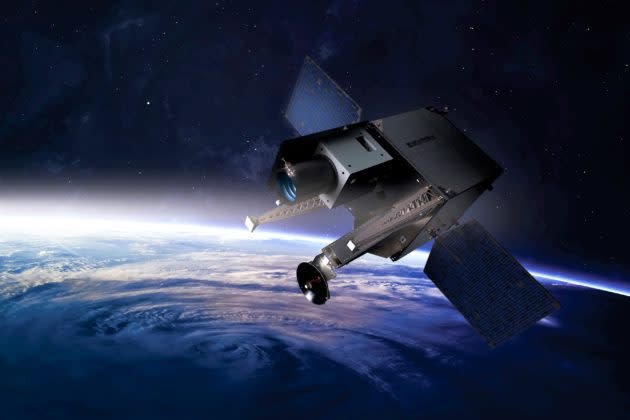Boeing expands satellite portfolio with acquisition of Millennium Space Systems

Boeing says it’ll expand its already-strong satellite portfolio with the acquisition of Millennium Space Systems, a California-based venture that specializes in small satellites for national security customers.
Founded in 2001, Millennium had its first satellite, the 200-kilogram (440-pound) Rapid Pathfinder Prototype, launched in 2011 for the National Reconnaissance Office’s NROL-66 mission. Millennium says it provided more than six years of operations for three classified payloads.
The privately held company was awarded a U.S. Air Force contract for a geosynchronous satellite system, based on its Aquila platform. It also won backing from the Defense Advanced Research Projects Agency for a class of small satellites that can be built in 90 days for less than $500,000.
The first satellite in that class, Altair Pathfinder, was deployed into orbit from the International Space Station last year.
“Millennium Space Systems’ expertise in vertically integrated small-satellite solutions perfectly complements Boeing’s existing satellite portfolio, and will allow us to meet the needs of a diverse customer set,” Leanne Caret, president and CEO of Boeing Defense, Space and Security, said today in a news release.
“We look forward to incorporating Millennium Space Systems’ end-to-end mission solution capabilities into our service offerings in satellite operations and data solutions,” Caret said.
Millennium CEO Stan Dubyn said he was proud of the accomplishments of his team, which currently takes in about 260 employees. “By combining our tools, talent, technologies and culture, we’ll be able to do even more incredible things as part of Boeing,” Dubyn said.
The acquisition is subject to the customary conditions and is expected to close by the end of September. Once the deal closes, Millennium will become a Boeing subsidiary, operating under its current business model and reporting to Mark Cherry, the vice president and general manager of Boeing Phantom Works.
Terms of the agreement were not disclosed. Boeing said the transaction will have no impact on the company’s 2018 financial guidance or its commitment to returning free cash flow to shareholders.
Boeing has manufactured satellites for a wide spectrum of applications — ranging from GPS satellites and military communication networks, to the TDRS satellites for NASA’s space shuttle and space station programs, to commercial telecom satellites for customers including ViaSat, Intelsat, DirecTV and SiriusXM.
More from GeekWire:
From Stratolaunch to startup: Chuck Beames raises his sights to York satellites
Virgin Orbit satellite launch spin-off created with ex-Boeing exec at the helm
Spaceflight strikes deal with Rocket Lab for three satellite launch extravaganzas
Blastoff for 3-D printing: How Virgin Orbit harnesses high tech for low-cost rockets

